Are you about to get your crane operator's license and want to know not only how the training works, but also whether the training to become a crane operator is really worth it ?
This guide answers all the crucial questions: Where is a crane operator's license required ? Which types of cranes require which training? What exactly do the theoretical and practical exams entail? What mistakes lead to failure ? And: How does the investment really pay off ?
Crane operator's license – Certificate of competence to operate a crane in accordance with DGUV regulations
The crane operator's license (also crane driver's license ) is the legally required certificate of competence for all persons who professionally operate or drive a crane .
He confirms that the crane operator has sufficient theoretical and practical knowledge , personal suitability , and appropriate training in accordance with DGUV Principle 309-003 .
Legal basis for the crane operator's license
- DGUV Regulation 52 – Cranes
- DGUV Rule 100-500
- DGUV Regulation 1 – Principles of Prevention
- DGUV Principle 309-003
Where is a crane operator's license required? Industries & application scenarios
A crane operator's license is required wherever loads are moved using cranes. In practice, this affects significantly more industries than just traditional building construction.
Construction & Building Construction
In the construction industry, a crane operator's license is mandatory for tower cranes, mobile cranes, and gantry cranes . No crane operator is permitted to lift or position loads without a valid qualification.
Industry, Assembly & Production
In industrial and manufacturing plants , overhead cranes, bridge cranes, pillar cranes, and rail trolleys are frequently used. Loads are regularly moved across workstations – a particularly safety-critical area.
Logistics & Transport
In the logistics sector, the crane operator's license for truck-mounted cranes is particularly in demand. It enables the independent loading and unloading of heavy goods without additional equipment.
Career and salary impact
A crane operator's license is considered a real career springboard in many companies. Qualified crane operators are in short supply – the added value is correspondingly high.
Validity of crane operator's license & annual training for crane operators
How long is the crane operator's license valid for?
The crane operator's license is valid indefinitely . There is no fixed expiry date and no automatic renewal.
Annual training for crane operators (mandatory)
Regardless of the validity of the crane operator's license, annual instruction is mandatory.
- at least once a year
- according to DGUV Regulation 1
- Duration: approx. 0.5–1 day
Refresher training for crane operators
Additionally, refresher training is recommended every 4-5 years, especially after longer breaks from operation or when changing crane types.
Requirements for training as a crane operator
- Minimum age: 18 years
- physical and mental suitability
- sufficient German language skills
G25 examination – medical fitness
In practice, the occupational health examination G25 is standard for operators.
- Sight and hearing
- spatial vision
- Responsiveness
Crane training & training to become a crane operator
Theoretical training
The theoretical part of the crane training provides all the basics for safe, efficient and legally compliant crane operation .
- DGUV Regulation 52 & DGUV Rule 100-500
- Crane types, designs and crane booms
- Load moment, center of gravity, lever principle
- Attaching loads
- Accident prevention and occupational safety
Practice crane operator's license exam questions
Practical training – operating a crane
In practice, participants learn how to operate a crane safely , correctly attach loads and move them in a controlled manner.
Theoretical exam for crane operator's license – procedure & assessment
The theoretical exam is a multiple-choice test .
- 40–50 questions
- Question pool with approximately 180 questions
- Processing time: approx. 90 minutes
- Passing threshold: approx. 70–80%
Sample exam questions (theory)
Question: Which DGUV regulation applies to cranes?
A) DGUV Regulation 1
B) DGUV Regulation 3
C) DGUV Regulation 52
D) DGUV Rule 112-198
Question: How is the load moment calculated?
A) Weight
B) Weight × Lever arm
C) Height × Weight
D) Angle of rotation × Weight
Practical exam – procedure, tasks & reasons for failure
The practical test lasts 30–60 minutes, depending on the type of crane.
Typical exam questions
- Lifting and moving loads
- safely lower the load
- Communication with the snitch
Common causes of diarrhea
- Endangering people
- incorrect attachment of loads
- Disregard for hand signals
Crane types – comparison based on effort & costs
| Crane type | Mission | Length of time | Cost | complexity |
|---|---|---|---|---|
| Overhead crane | industry | 1–2 days | €200–600 | Small amount |
| truck-mounted crane | logistics | 2–4 days | €600–1,200 | Medium |
| Tower crane | Building construction | 10–15 days | €2,000–3,500 | High |
Practical case studies: Is a crane operator's license worthwhile?
Case Study 1: Anna – Overhead Crane Operator
Anna works as a warehouse employee in a logistics center.
- Current salary: €33,000/year (standard warehouse job 2026)
- Perspective: Limited, no particular career opportunities
Decision: Get a crane operator's license
- Course fee: €450
- G25: €80
- Total investment: €530
Result after 3 months:
- New job: Overhead crane operator at the same company
- New salary: €40,500/year
- Additional income: +€7,500/year
- ROI: €530 → +€7,500 = 15× , Amortization in less than 1 month
- Long-term perspective: With 5+ years of experience: €42,000–€45,000+
Case Study 2: Peter – Truck-Mounted Crane
Peter is expanding his qualifications for logistics assignments.
Investment: €850
Added value: +€700/month
Case Study 3: Thomas – Tower Crane
Thomas transitions from construction helper to permanent crane operator.
Investment: €2,500
Added value: +€25,000/year
Conclusion: Crane operator's license is the key to safe and professional crane operation
A crane operator's license is far more than just a formal qualification. Holding one demonstrates that you can operate cranes professionally, safely, and in accordance with legal requirements . Crane operator training provides comprehensive knowledge for safe and efficient crane operation – from correctly slinging loads to working safely on crane systems in warehouses, industrial buildings, and assembly halls .
The required training depends on the crane type : overhead cranes , bridge cranes (including rail trolleys ), gantry cranes , column and jib cranes or special applications such as the crane operator's license for truck-mounted cranes each require appropriate qualification.
During the training, participants learn to operate cranes safely , move loads correctly and recognize risks early – supported by practical exercises, clear instructions and personal guidance from experienced instructors .
Crucial for long-term use is not only the license itself, but also the regular annual training for crane operators . This ensures that knowledge remains up-to-date and that the safe handling of cranes is guaranteed in everyday practice.
Those who acquire their qualifications in a suitable training center and refresh them regularly create the basis for greater occupational safety , better job opportunities and sustainable professional development.


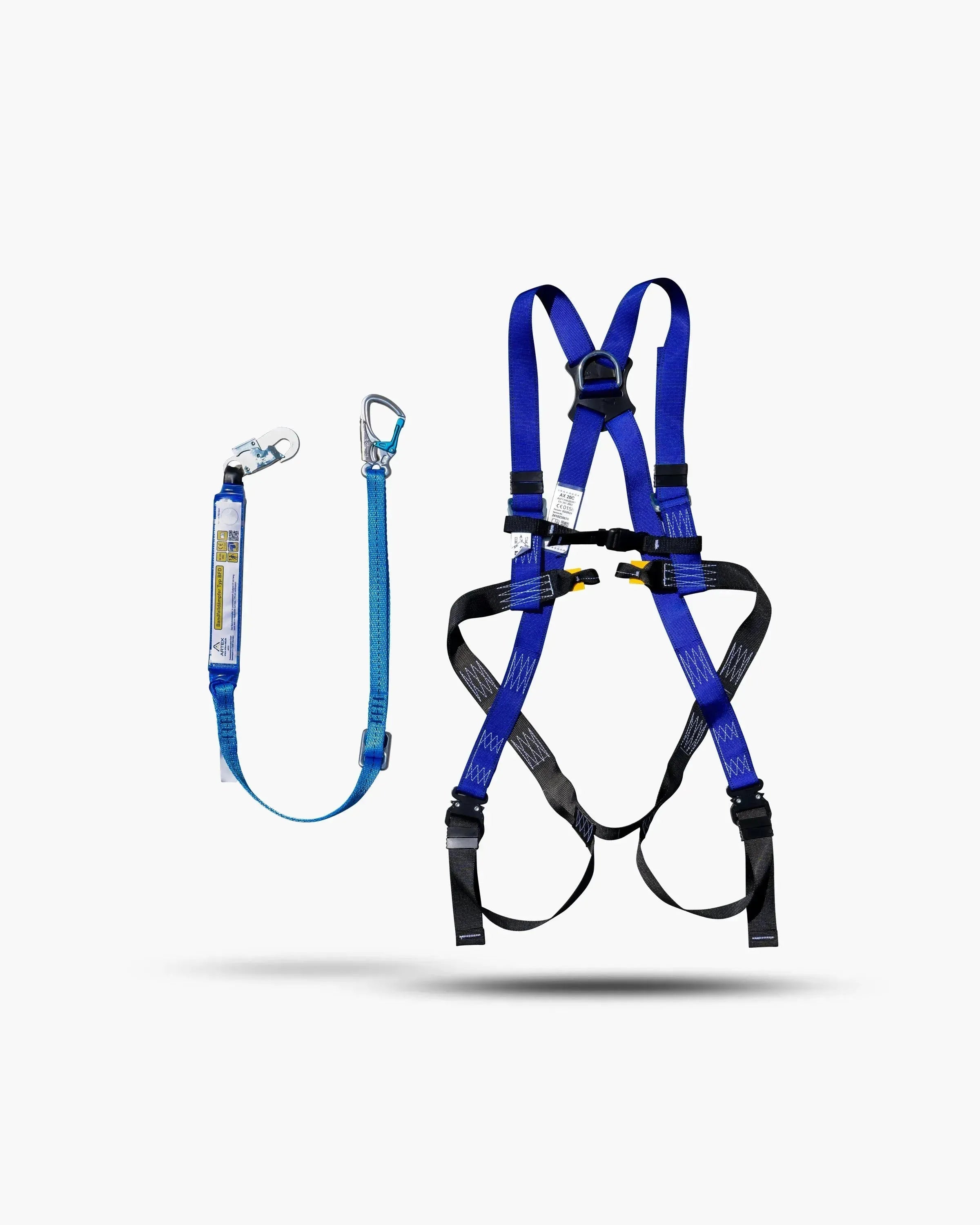




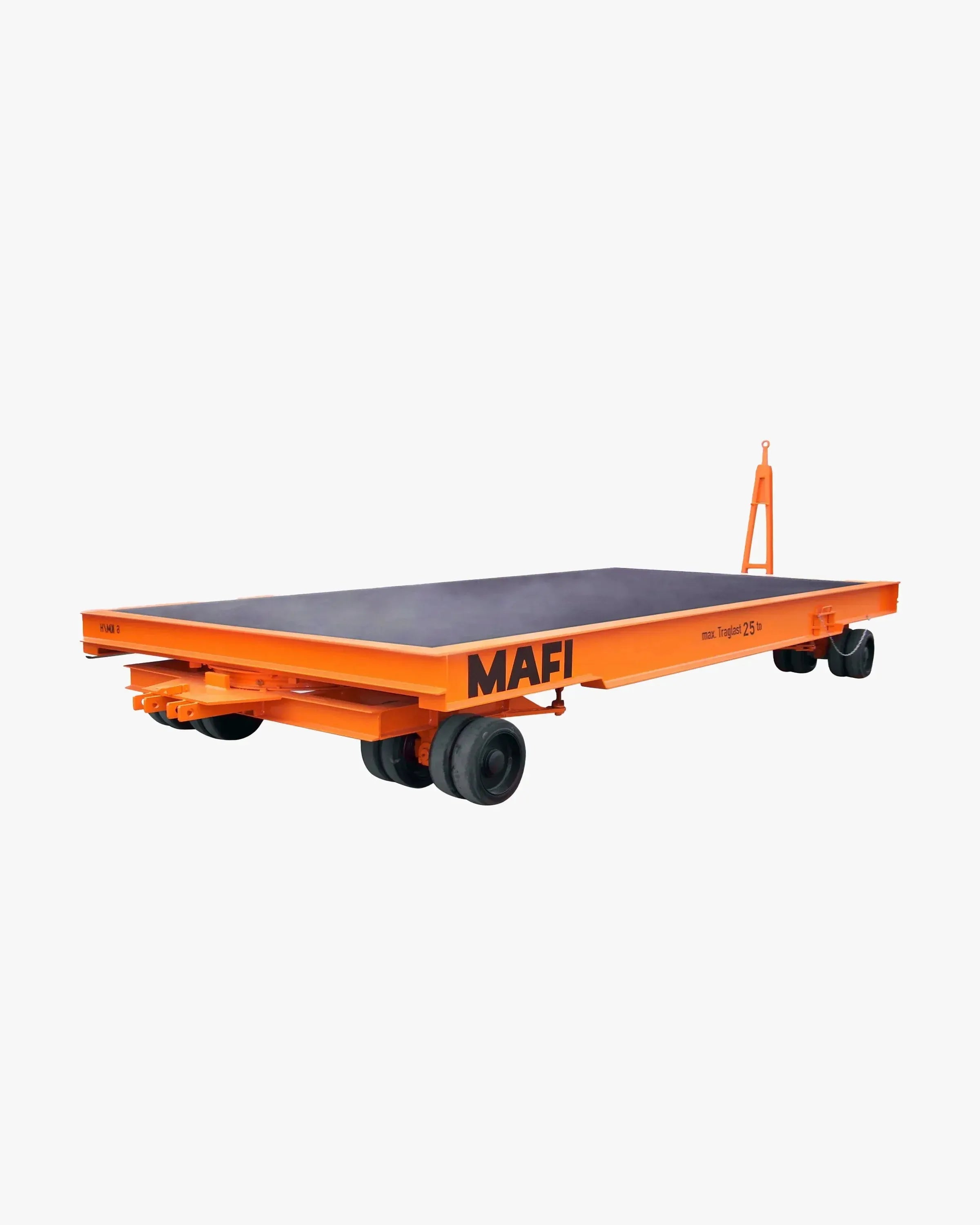
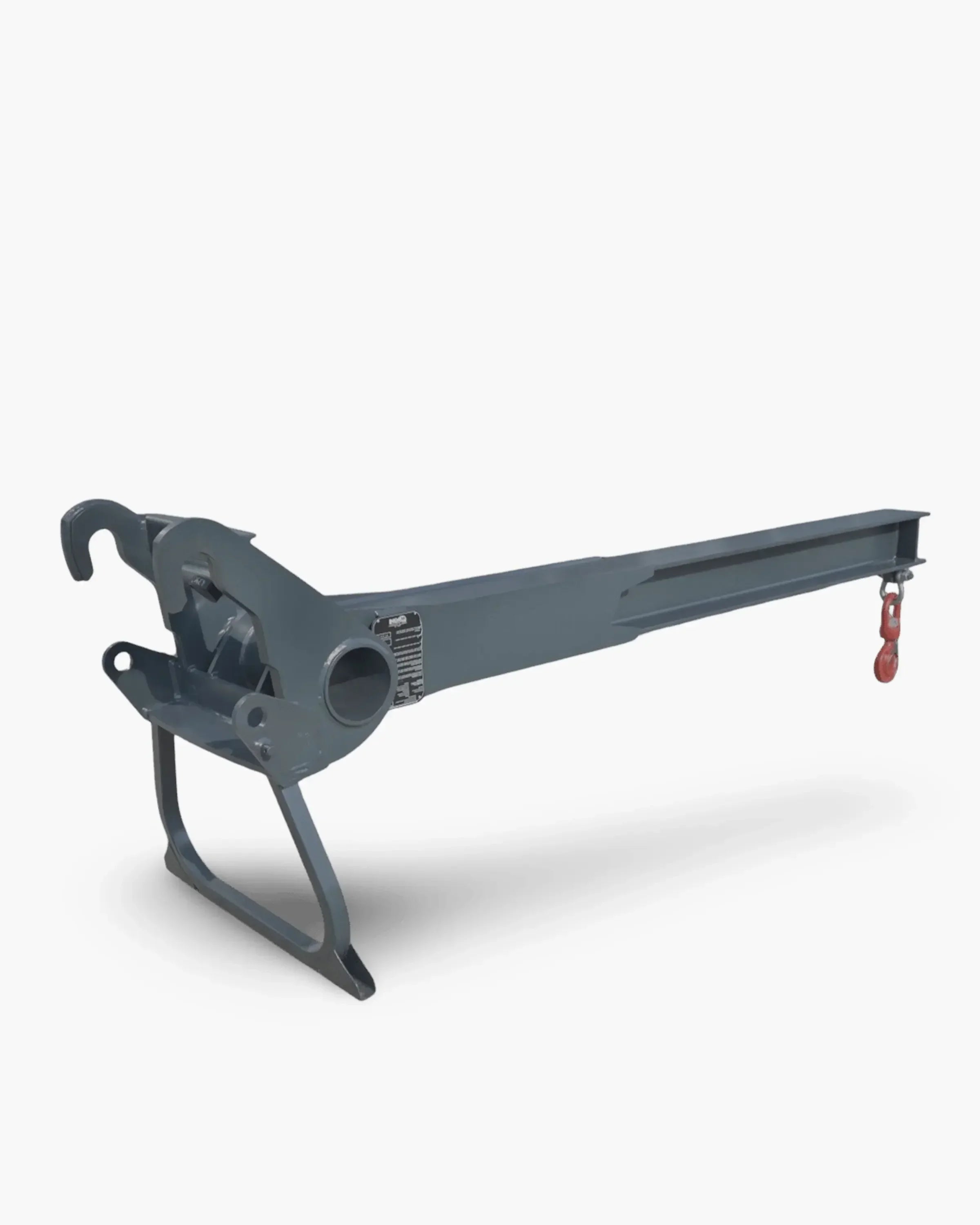
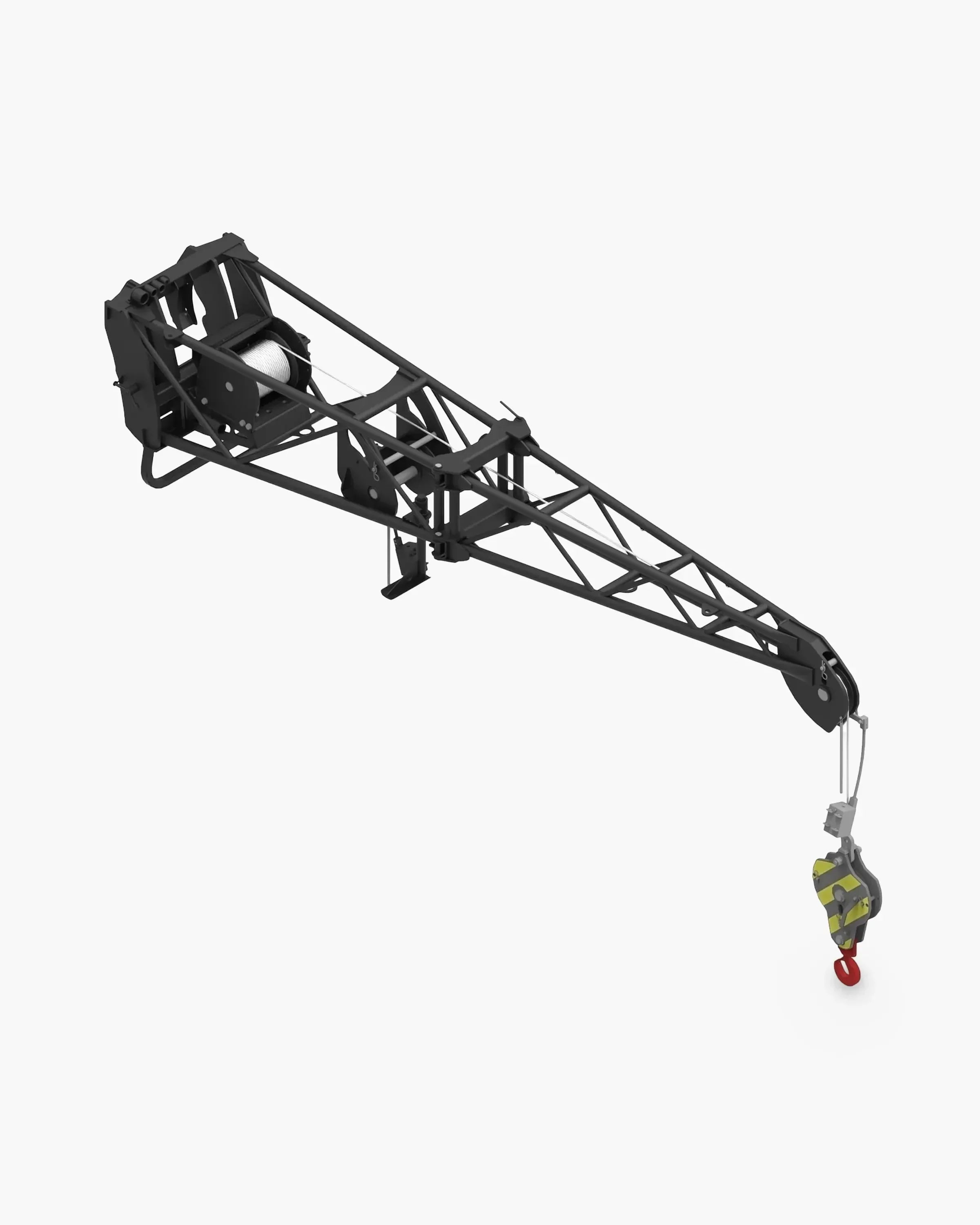
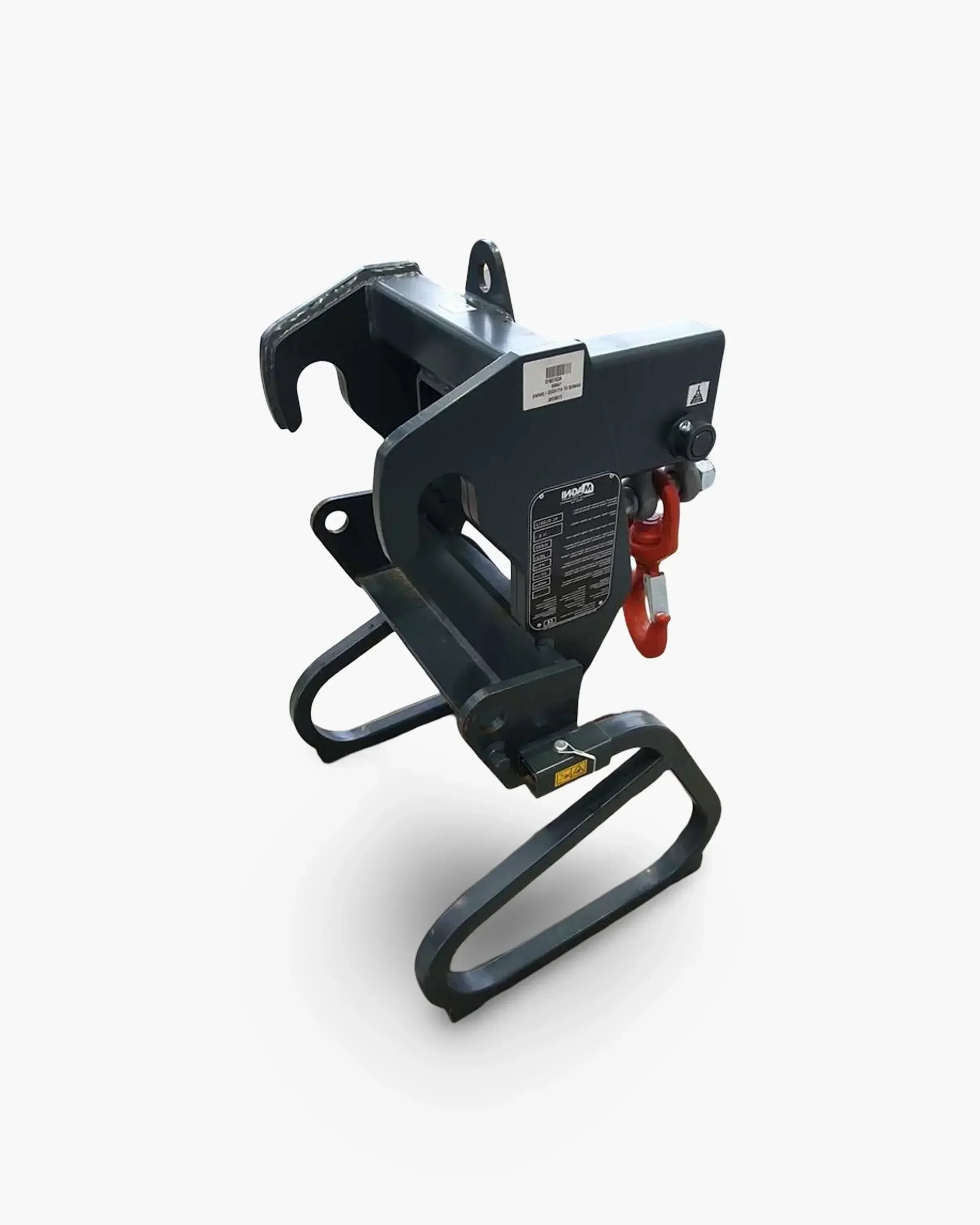

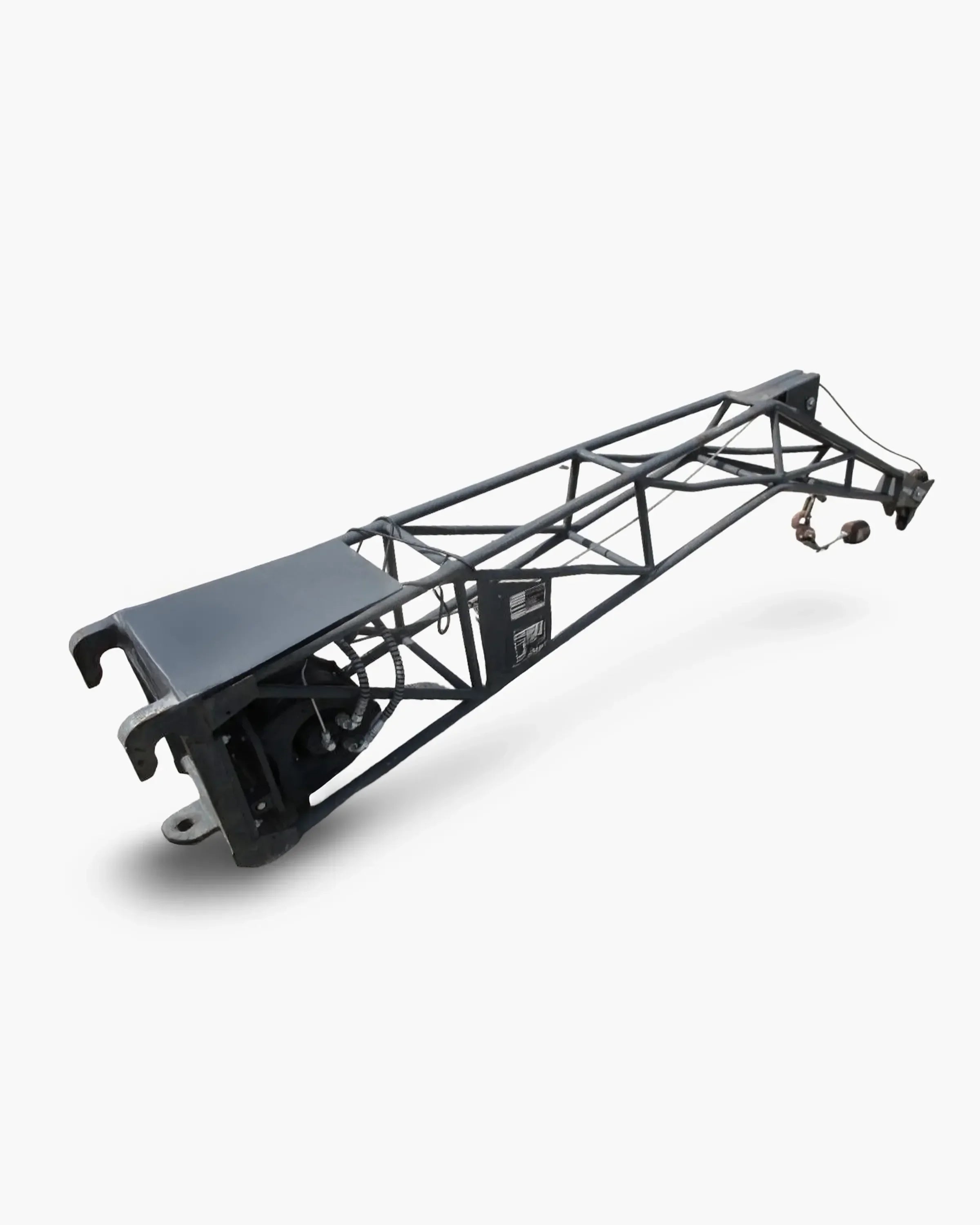
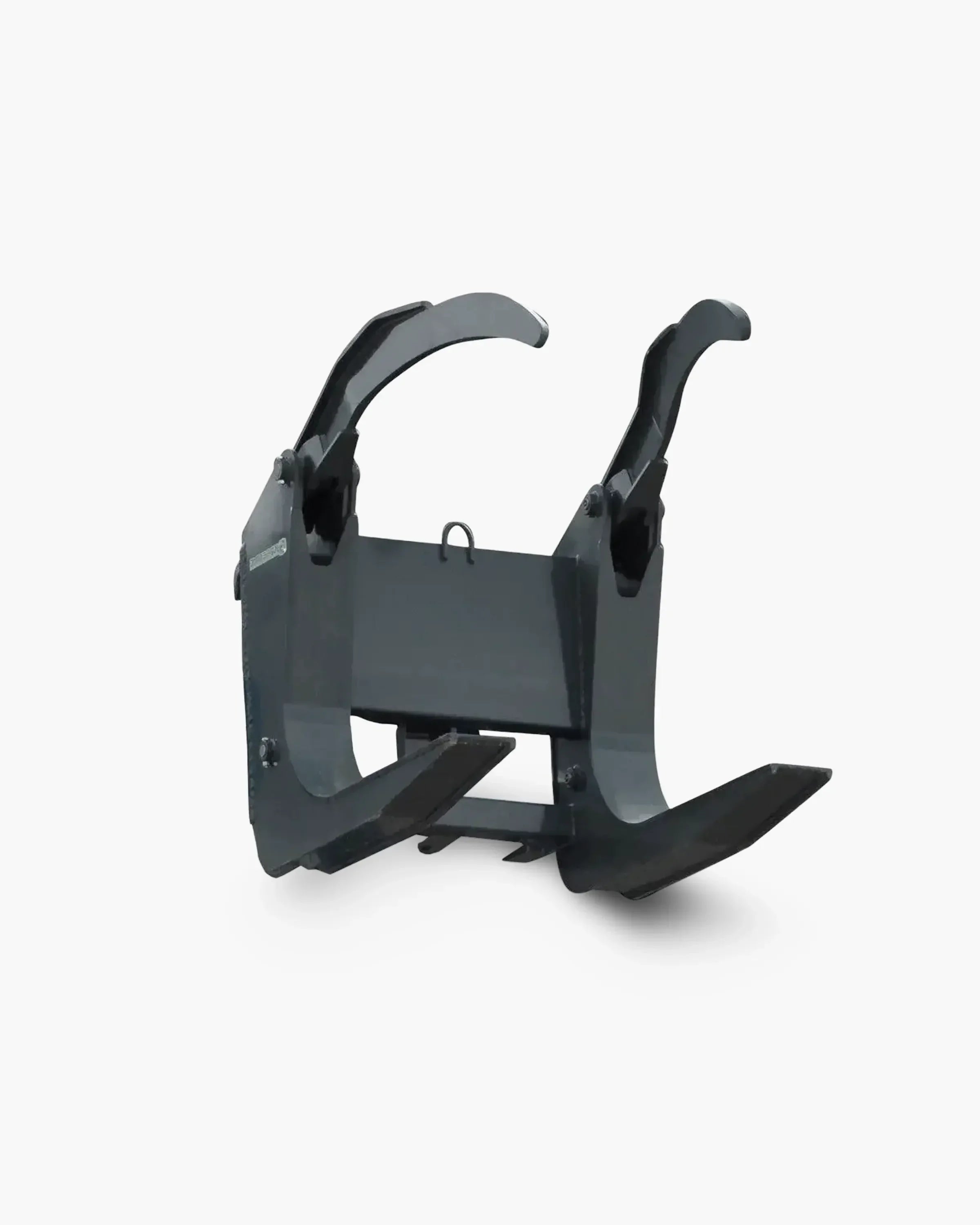
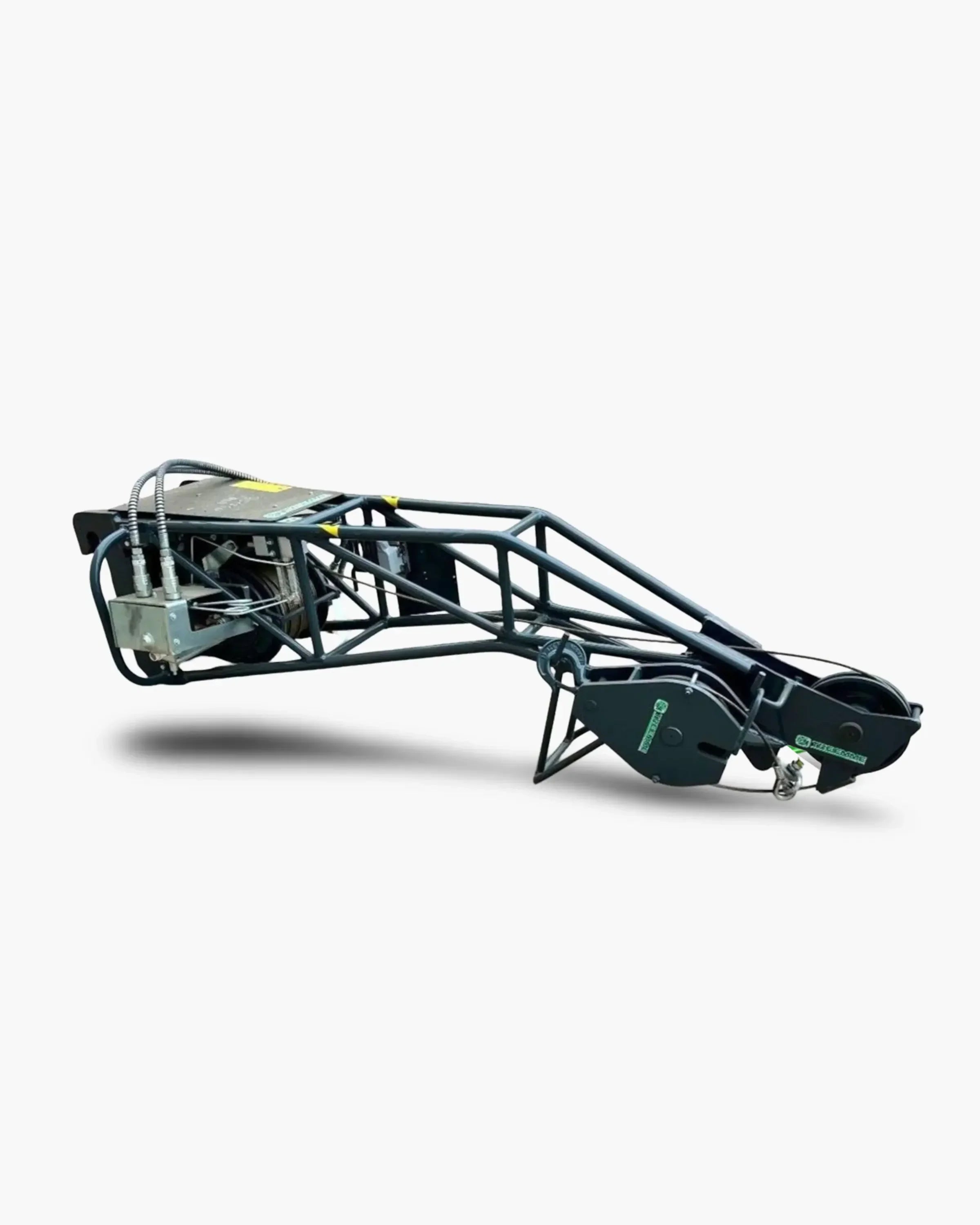

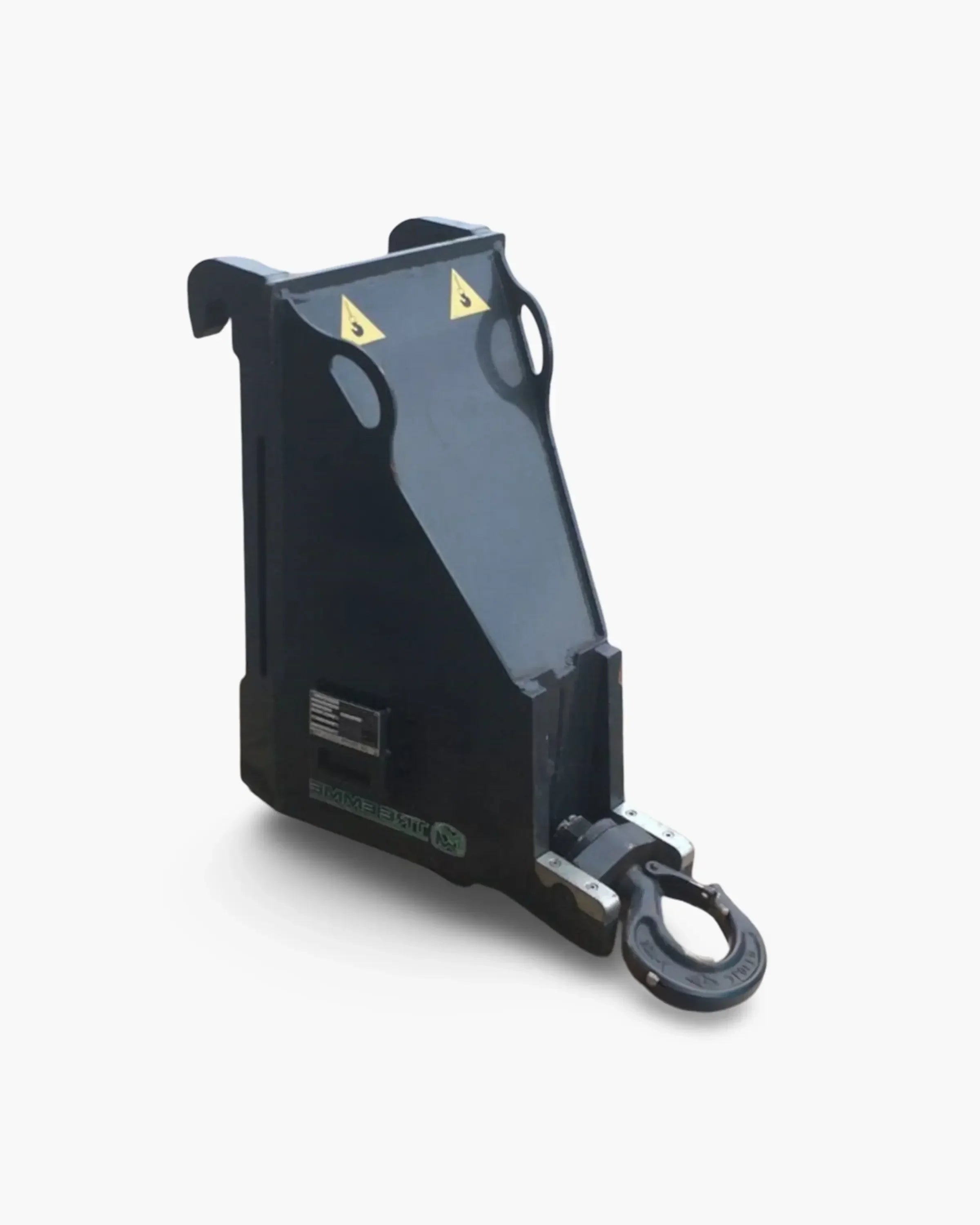
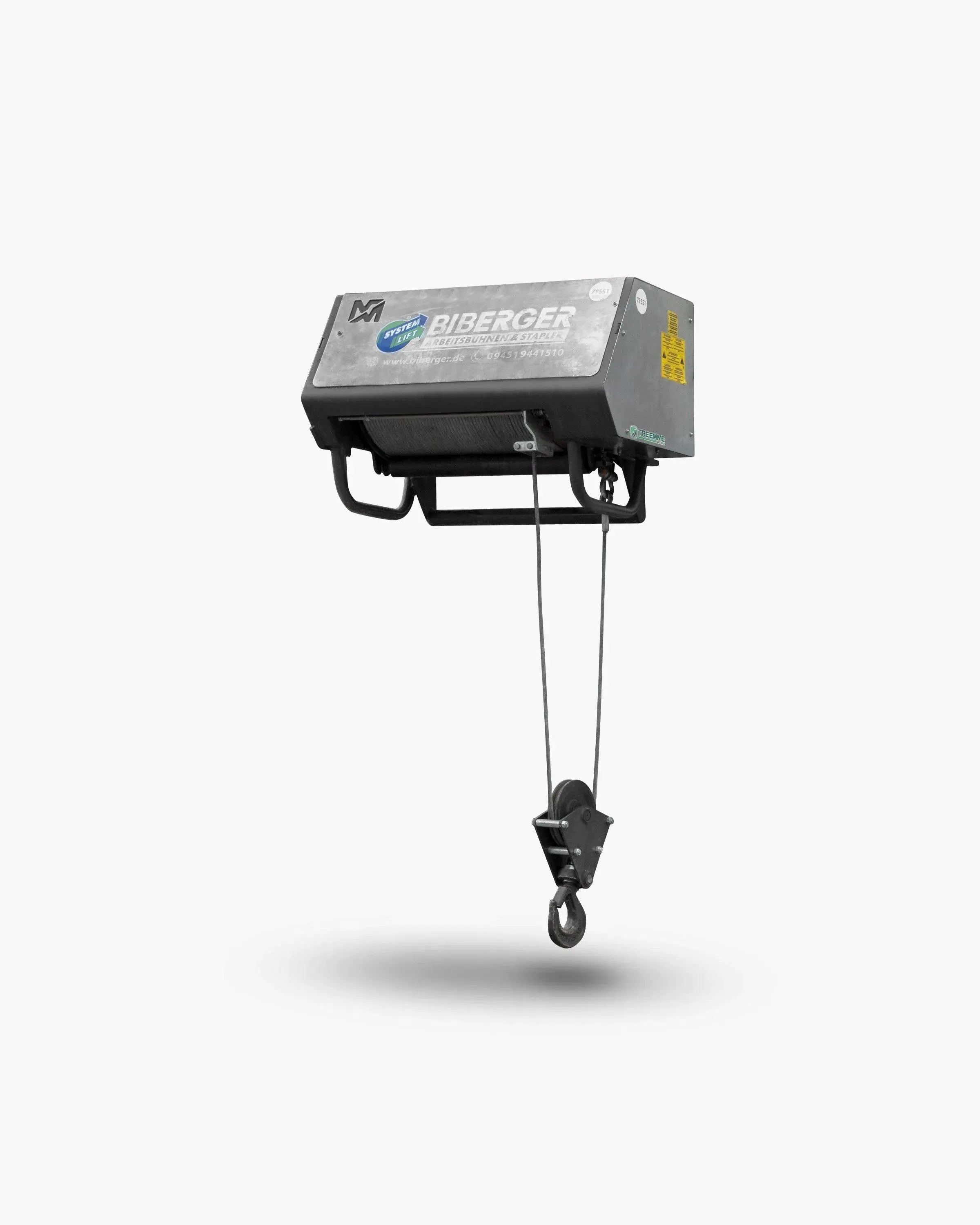
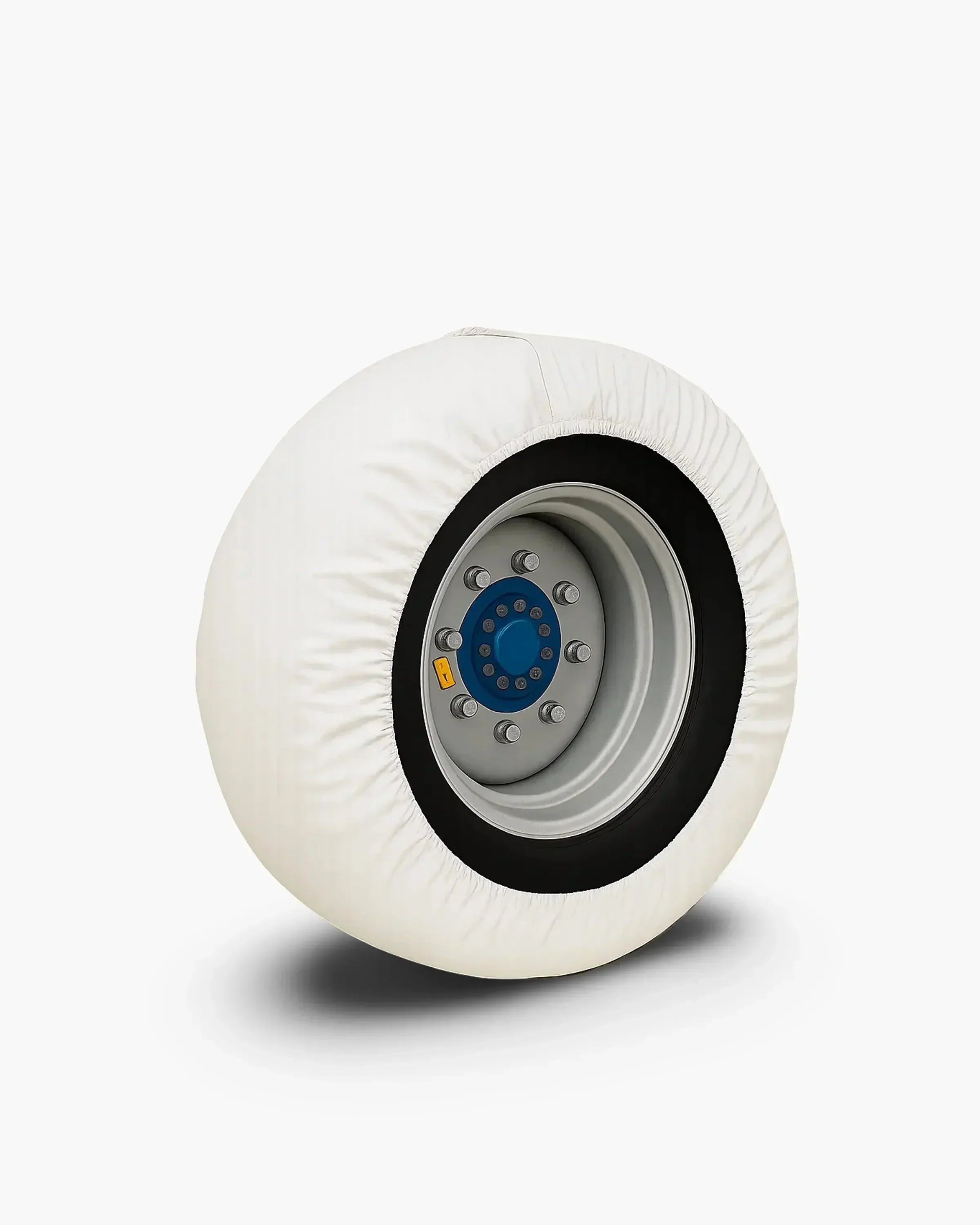




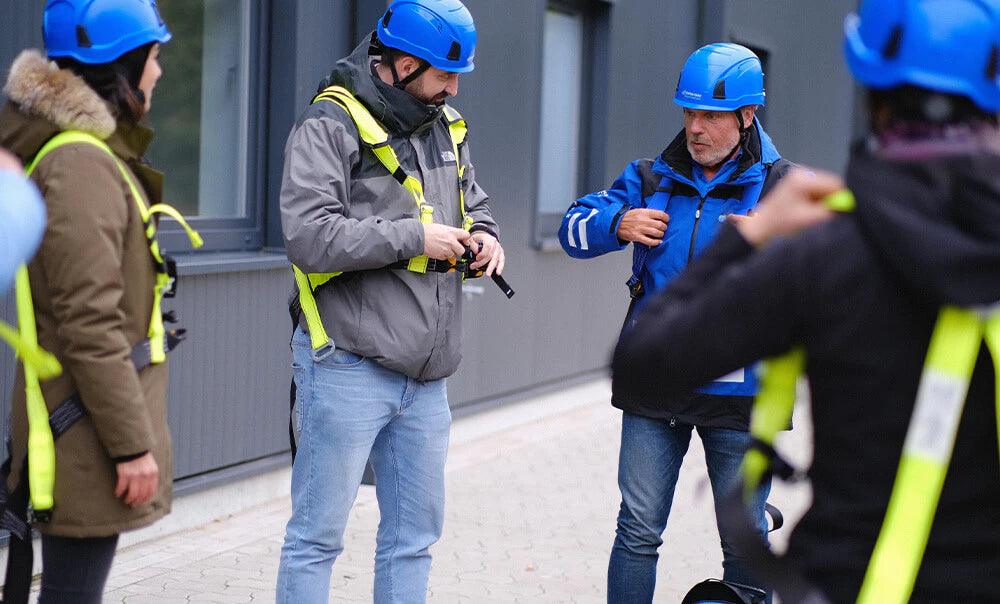

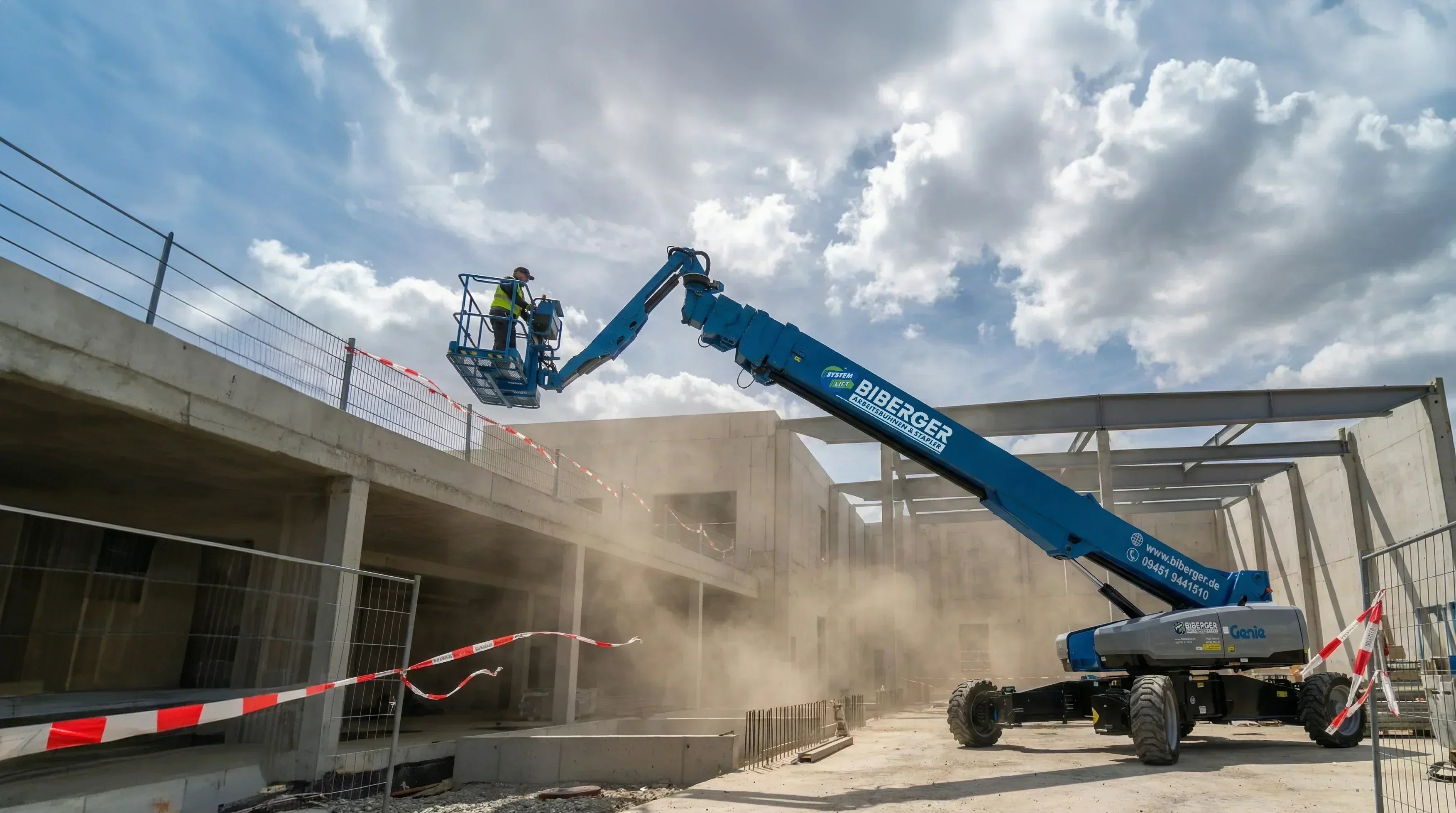

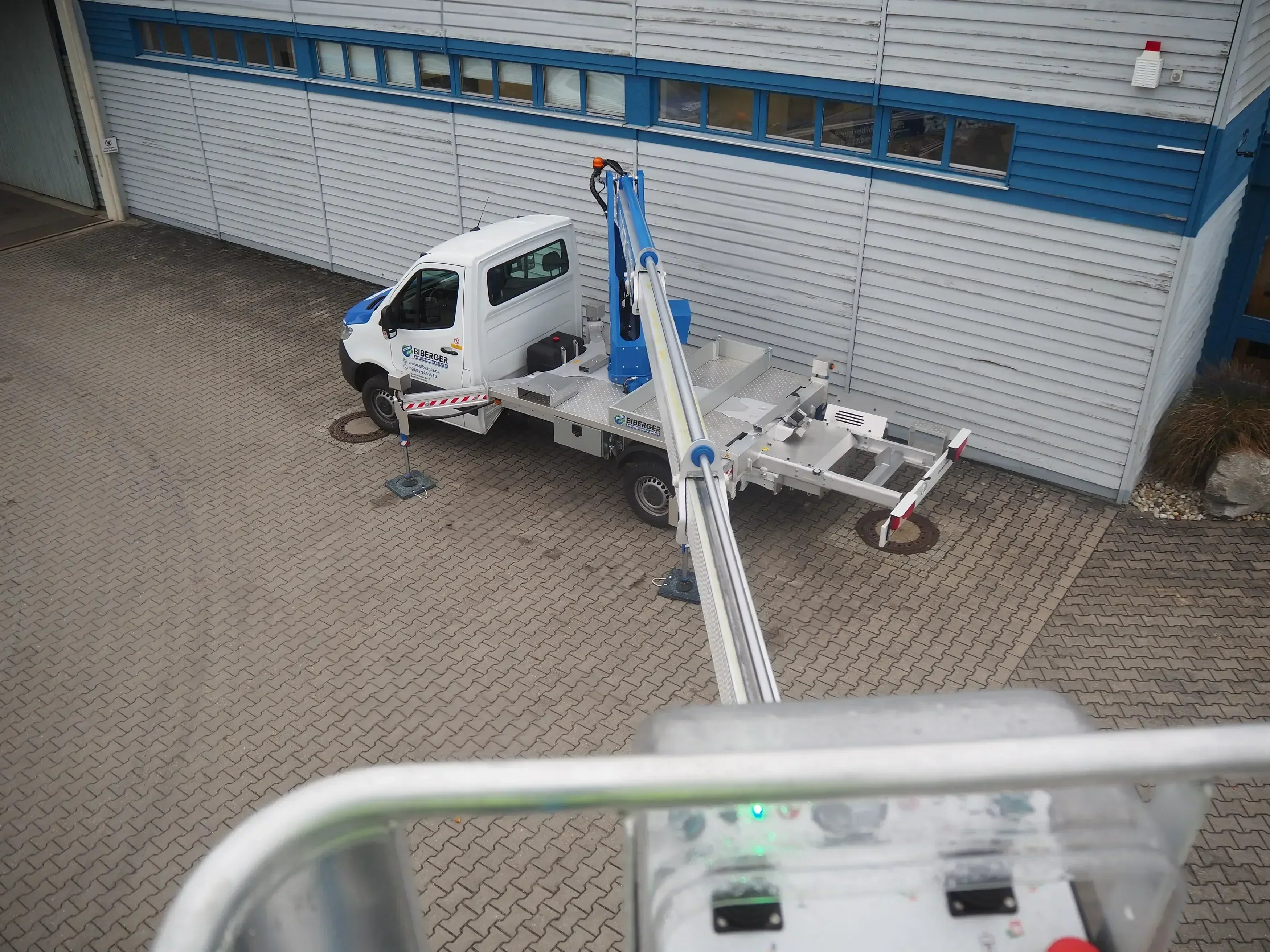
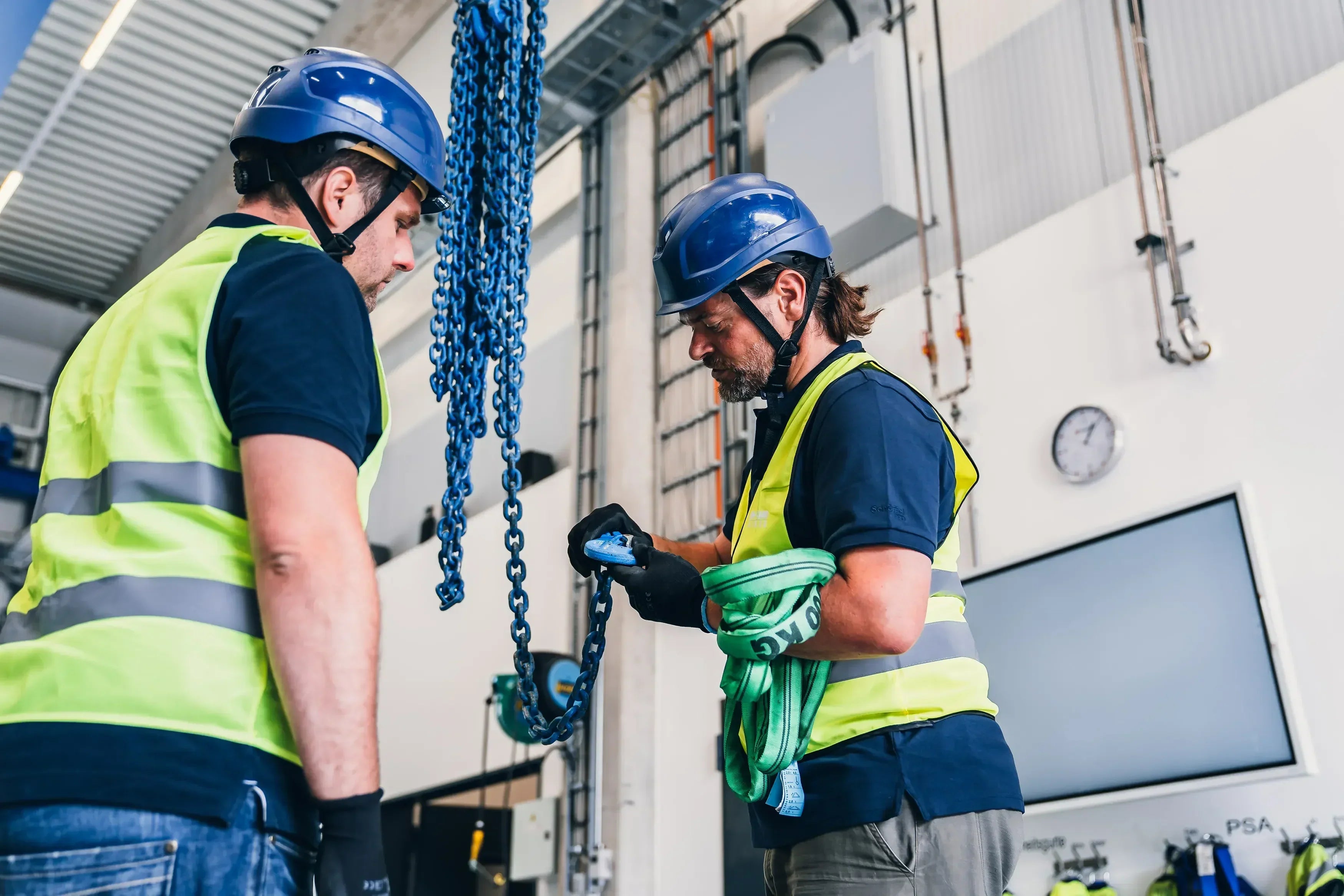
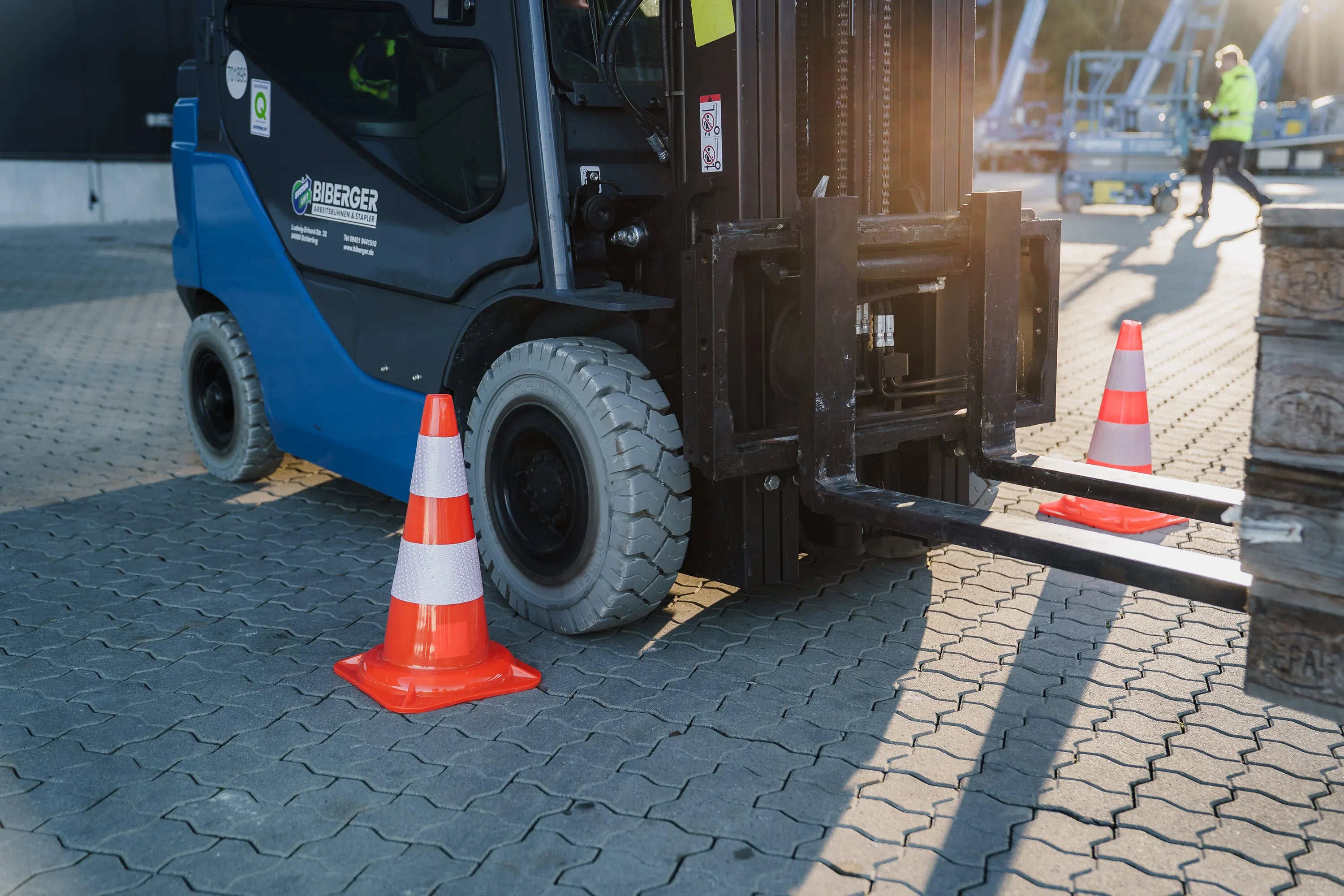
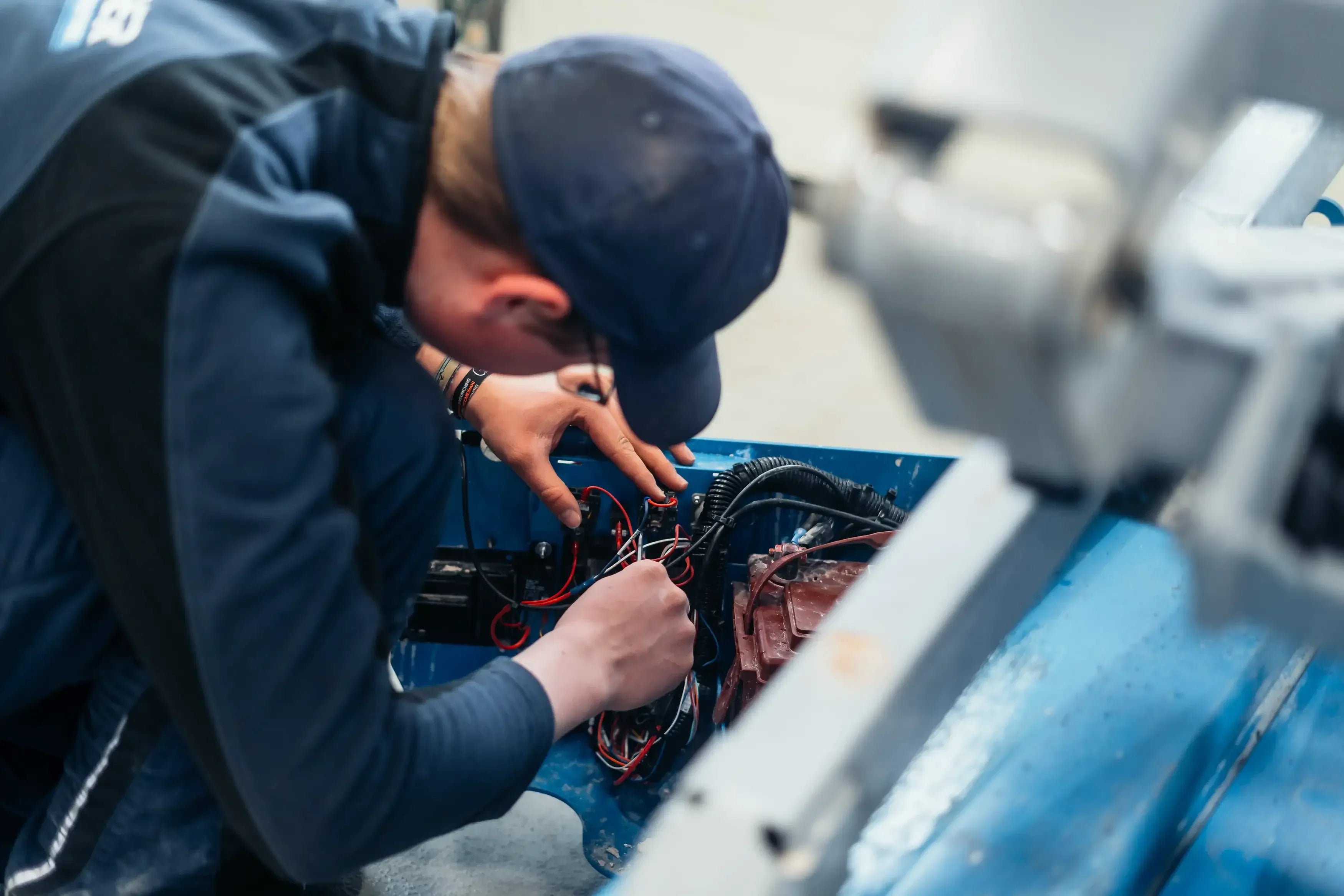






Share:
Installing outdoor advertising safely: What should you consider during installation?
Understanding the turning circle: How to choose the right device
Our editorial quality standards
The subject content on biberger.de are editorially created, reviewed, and continuously updated. The basis is our daily work with aerial platforms, telehandlers, and industrial trucks – in rental, sales, operational planning, and technical support.
Each article draws on real-world experience and is editorially reviewed for clarity, accuracy, and practical relevance according to expert criteria. Technical statements are regularly compared against current industry standards and best practices.
The aim of our publications is to make reliable specialist knowledge accessible and to offer guidance to users, decision-makers and industry partners. BIBERGER sees itself as an independent information platform for safe, economical and modern height access technology – well-founded, comprehensible and free from advertising influence.